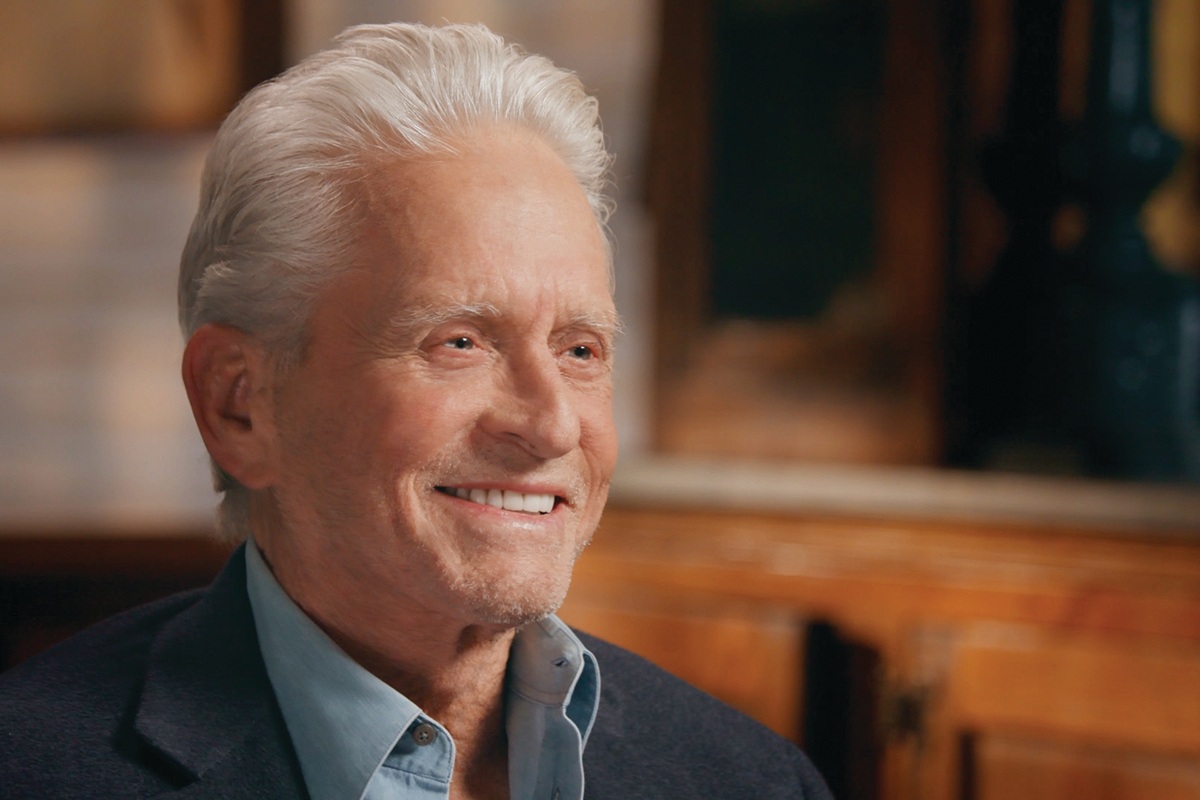“I feel more of a spiritual, religious connection to Judaism than I ever had before,” actor Michael Douglas says in the latest episode of PBS’s “Finding Your Roots,” which airs today.
Douglas is, of course, the son of renowned actor Kirk Douglas, who was born Isidore Demsky to Jewish parents in Amsterdam, New York. Early in the episode, Douglas, who, like his father, has spoken about his proud connection to his Jewish identity and who celebrated his son’s bar mitzvah in Israel, talks about his relationship with Kirk, and how he didn’t feel like he could really come out of his shadow until he won an Academy Award for “Wall Street.”
He also talks about his father’s relationship with his Jewish dad, Harry, who he says was a “very closed off individual… he didn’t write… he spoke Yiddish all the time. It was a closed world.”
When Kirk Douglas achieved fame and fortune as an actor, it only broadened that rift between him and his father, who struggled with the fact that he, as an immigrant, could not achieve that same success.
Neither Kirk, nor Michael, knew much about Harry’s history. Host Henry Louis Gates Jr. and the team of “Finding Your Roots” also struggled at first to find more details about Harry’s life, and were unable to find his name in records from Ellis Island. But they did manage to find the entry records of one his brothers, Abram, into the country. From there, they traced his origins back to Chausy, now in Belarus, then part of the Pale of Settlement where Russia’s Jews were relegated to. They were not allowed to attend schools or learn to read or write, and faced constant persecution and violence.
Gates discovered the probable reason why Harry’s records couldn’t be found. Born Girsh Danilovich, Gates found a record of him being arrested for robbery, as well as similar records for his uncle and brother. That meant that Harry probably entered the country under a pseudonym to hide his criminal past. While Harry told his family that he came to America to avoid serving in the Russian army, it’s likely that he came to the country to avoid prison.
Through the discovery of another of Harry’s brothers, Reuven Danilovich, the “Finding Your Roots” team managed to trace back two more generations of Douglas’ family, giving him the names of his relatives that lived back in the 1800s, in the days of Dostoyevsky. They also found images of an old cemetery where his Jewish family is likely buried, tracing them all the way back to the 1700s.
“It’s a Jewish cemetery?” an emotional Douglas asks in the episode, to which Gates replies in the affirmative. Gates also found photos of where Douglas’ family most likely lived — in the Jewish quarter, or ghetto, of Chausy.
Seeing this part of his family history, Douglas said, made him feel more connected than ever to what he called his “Judeo roots,” and allowed him to connect to his history in a more emotional, personal way. Douglas also shared that he wished he could go through the family album with his father and show him the picture of his family’s ancestral home.
“I think he’d be very very touched and really appreciate it,” he says. “His career took him away from Amsterdam, New York,” but, “he tried to always keep in touch with his six sisters.”
Another Jewish celebrity, Lena Dunham, also discovered more about her Jewish family’s European roots in the episode. Dunham, who could be seen crying at times, learned that her great-great-grandmother Regina, who immigrated to the U.S. from Europe, left behind at least 11 brothers and sisters in Europe.
The actress and writer, who is about to star in the comedy film “Treasure” about a woman chasing her own family’s Holocaust history, found out about Regina’s brother Moses, whose daughter Ilona was likely killed in the Holocaust, though he, his wife and son survived.
“It’s an incredibly painful thing to think about people with whom I share probably not just DNA, but features and emotional responses and an approach to life — those people being placed in this situation and having their lives extinguished this way,” Dunham says in the episode. “There’s not a way to reckon with it. It’s too big and the whole act is too vast, but to see a personal connection to it literalizes it in a way that’s very, very powerful.”








